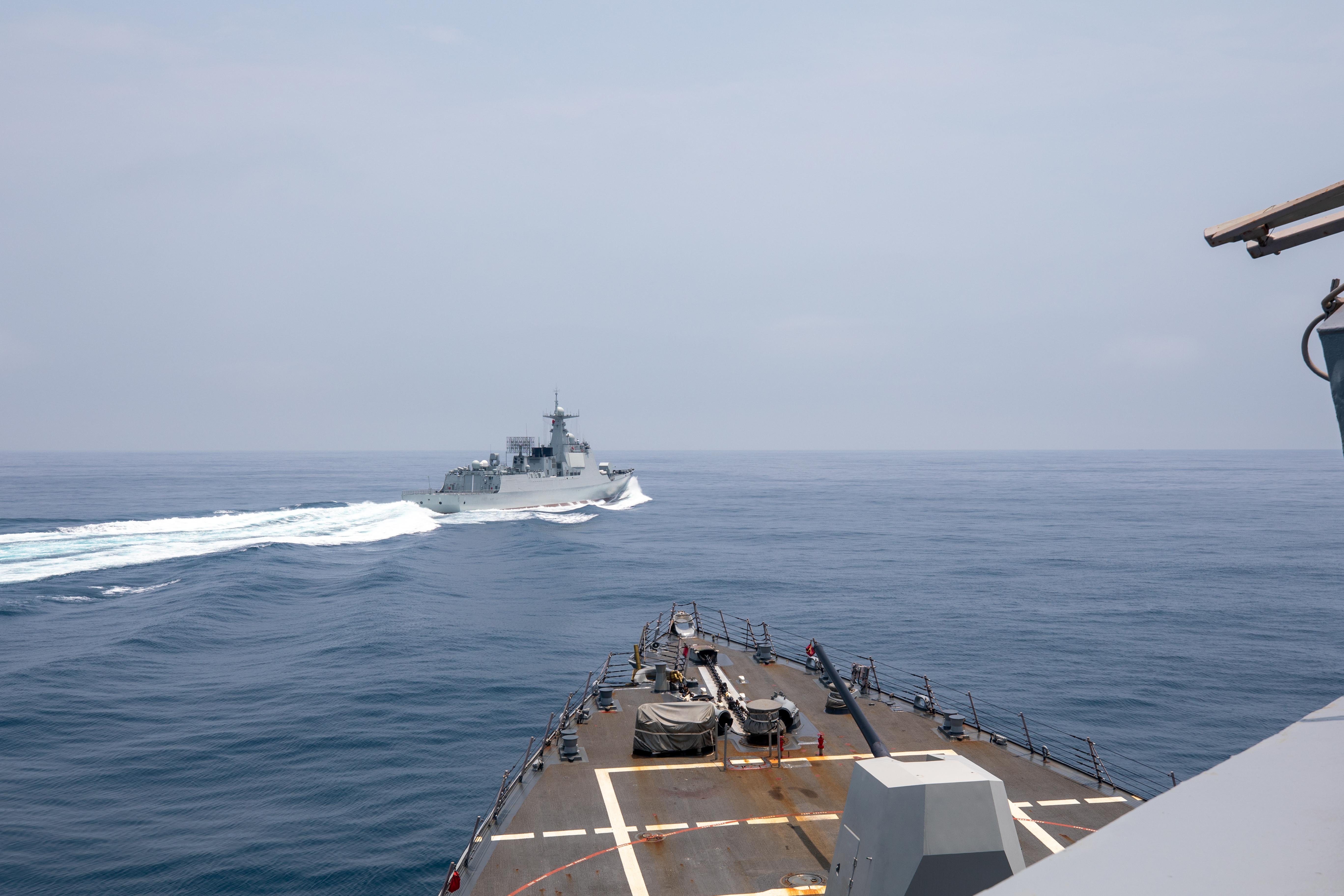
China is increasingly harassing ships and aircraft operating in international waters and airspace as it ups its bully tactics against neighbors, the State Department’s top diplomat for East Asia and the Pacific said last week.
Daniel Kritenbrink, the assistant secretary for the region, said the United States made clear in its recent meetings with top Chinese foreign ministry officials that it “rejects the PRC’s [People’s Republic of China’s] claims in the South China Sea.”
Kritenbrink referred to China’s rejection of a 2016 international arbitration panel’s denial of its territorial claims to waters and maritime features like reefs close to the Philippines while speaking at the Center for Strategic and International Studies. Kritenbrink said the U.S. has stepped up Freedom of Navigation Operations and joint presence patrols with the Philippines close to the Spratly Islands in support of the ruling.
“FONOPS challenge unwarranted territorial claims” like China’s, he said, adding that another reason for these maritime operations and flight equivalent missions is to demonstrate to all nations that “big and small countries [must] play by the same rules.”
Kritenbrink added that China’s harassment isn’t confined to international or contested waters. He used Manila as an example of provocative maneuvers, citing the May incident when a Chinese corvette nearly collided with a Philippine Coast Guard vessel that was on a routine patrol in the Philippines’ exclusive economic zone.
Washington’s positions in all territorial disputes is to have them resolved peacefully, Kritenbrink said. Brunei, Malaysia, Vietnam and Taiwan also claim the Spratlys.
A top goal of Secretary of State Antony Blinken’s meeting in Beijing with his Chinese counterpart and President Xi Jinping was “to re-open lines of communication” between the two powers to reduce the “risk of miscalculation.” One example Kritenbrink cited as potential miscalculation occurred earlier this month when a Chinese warship cut across the bow of an American guided-missile destroyer transiting the Taiwan Strait.
While predicting more high-level cabinet meetings with China, Kritenbrink said it “was most disappointing that we haven’t re-established [military-to-military communications]. We always need to talk to each other” in this “consequential and complex relationship.”
“But we’re sticking” to re-establishing the military communications links, he said.
Blinken’s original meeting in Beijing was postponed in the winter when a Chinese spy balloon entered American air space before the U.S. military shot it down off the South Carolina coast.
Shortly after Blinken and the delegation, including Kritenbrink, left Beijing, China sent an aircraft carrier and its escorts through the Taiwan Strait. An American Coast Guard cutter transited the strait before the Chinese ships entered.
This is a “particularly sensitive time” in cross-strait relations, Kritenbrink said. The Taiwanese are voting on a new president next year. President Tsai Ing-wen is barred constitutionally from a third term. He said the U.S. does not favor a unilateral move in Taipei to declare independence and opposes any move by Beijing to take the self-governing democracy by force.
To foster regional stability, Washington is building a “latticework” of relationships with allies like Japan, the Philippines, Australia and Korea; partners like Singapore; and friends, many of whom are in the Association of South East Asian Nations, Kritenbrink said.
He added that the Quad, the informal grouping of the United States, Japan, India and Australia, is playing an increasingly important role diplomatically, economically and militarily in the Indo-Pacific. He called the Quad the “most significant strategic development” in his decades-long diplomatic career.
One idea the four members of the Quad are supporting with technology and funds is building smaller nations’ real-time maritime awareness to “protect their own rights” over fishing and mineral and energy extraction. Building that capacity, using low-orbit commercially available satellites and linking that data regionally has been a Quad priority.
“We’re in this together,” Kritenbrink said. “We’re not in the business of forcing countries to choose” between Washington and Beijing.





